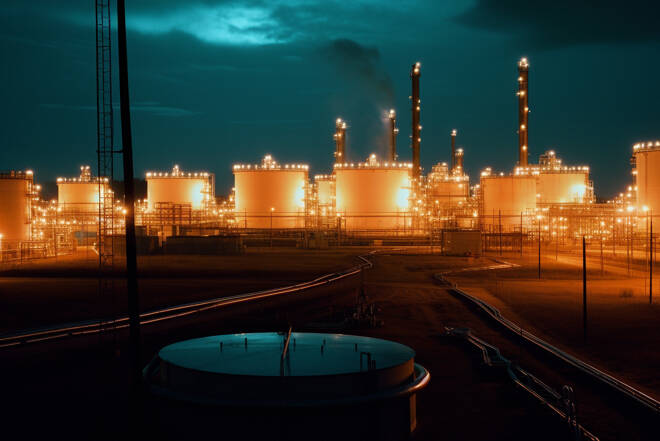Advertisement
Advertisement
Natural Gas News: Will Milder Weather Further Impact Futures Next Week?
By:
Key Points:
- Milder weather may extend downward trend in natural gas futures.
- Increased rig counts could signify rising natural gas production ahead.
- Recent storage withdrawals set to influence next week's gas pricing.
US Natural Gas Market: Weekly Recap and Forecast
Last week, U.S. natural gas futures saw a notable decrease, dropping over 8% for a second consecutive weekly loss. The downturn was primarily driven by forecasts for milder weather, which is expected to reduce heating demand.
For the week-ending March 15, natural gas settled at $1.655, down $0.15 or -8.31%
Weather Patterns and Demand
Meteorological forecasts predict warmer-than-normal conditions across the Lower 48 states until March 18, followed by a shift to near or colder-than-normal temperatures from March 19-26. However, a recent warmer trend in forecasts for late March suggests reduced demand, casting a bearish outlook for the period.
Rig Counts and Future Output
According to Baker Hughes, the U.S. witnessed a significant increase in oil and natural gas rigs, the largest weekly addition since September. The oil and gas rig count, an indicator of future output, rose to 629 by March 15, marking the highest count in six months. This increase hints at a potential rise in future natural gas production.
Storage and Withdrawals
The U.S. Energy Information Administration noted a larger-than-expected withdrawal of 9 billion cubic feet (bcf) from storage for the week ending March 8. Although this surpassed analysts’ forecasts, the market’s subdued response indicates that additional factors are influencing pricing.
Factors Influencing Prices
In late February, gas prices hit a low at $1.511 per mmBtu, the lowest since June 2020. This was attributed to near-record output, mild weather, and reduced heating demand, leading to increased gas storage. However, reduced output from major producers like EQT and Chesapeake Energy could influence future supply levels.
Production and Demand Projections
The U.S. EIA anticipates a decline in natgas production this year, while demand is expected to reach record highs. Conversely, financial firm LSEG forecasts a slight decrease in gas demand in the Lower 48 states in the upcoming week. Current production averages are lower compared to the monthly record set in December 2023.
LNG Exports and Future Outlook
Venture Global LNG’s recent regulatory submission for its Louisiana export facility suggests upcoming developments in the LNG export sector. Looking ahead, there is a bullish sentiment for the second half of 2024, driven by expected supply-side corrections and new demand from LNG facilities like Venture Global’s Plaquemines.
Short-Term Market Forecast
Considering the current weather forecasts, increased rig counts, and the recent mild reaction to storage withdrawals, a bearish outlook prevails for the short-term natural gas market. However, with anticipated adjustments in production and the initiation of new LNG projects, the latter part of 2024 holds a bullish potential.
About the Author
James Hyerczykauthor
James Hyerczyk is a U.S. based seasoned technical analyst and educator with over 40 years of experience in market analysis and trading, specializing in chart patterns and price movement. He is the author of two books on technical analysis and has a background in both futures and stock markets.
Advertisement
